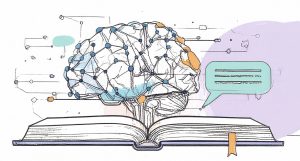Projects
Conversational Search and Information Seeking
Research on understanding and development of information access systems based on natural conversation. This includes theoretical models, practical implementations of dialogue-based search, conversational AI agents, interactive question-answering systems, and studies on how users seek information through conversations with digital systems.
Large Language Models and Generative AI for Information Access
Research that investigates the design, behaviour, evaluation, and application of large language models (LLMs) and generative artificial intelligence in information access contexts. This includes prompt engineering, retrieval augmented generation (RAG) methods, chatbot technologies powered by advanced language models, as well as human-AI collaboration for retrieving or generating relevant information.

Intelligent Assistants and Task Support Systems
Research digital assistants that support human productivity and task completion. This includes productivity tools designed for professional settings or daily activities, task management platforms leveraging artificial intelligence, and studies examining the impact of assistant technologies on user efficiency and experience.
Human-Centred Information Access: Behaviour, Bias, and Trust
Investigations into the human aspects of information systems, focusing on user behaviour patterns, cognitive biases in search interactions, and trust in AI-generated content. This research area emphasises transparency, explainability, and understanding how people perceive and interact with modern information access systems.
Speech, Audio, and Multimodal Interfaces
Research exploring innovative ways to interact with information access systems using speech technologies, audio-based input or output channels, or a combination of multiple modalities such as voice commands paired with text or visual elements. This research includes work aimed at improving accessibility through alternative interface designs tailored to diverse user needs.
Evaluation Methods, Benchmarks, and Datasets
Development and application of rigorous evaluation frameworks for information retrieval systems. This encompasses creating benchmark datasets, designing evaluation methodologies, and establishing metrics for assessing the effectiveness of search and retrieval technologies.
Workshops, Community Building, and Knowledge Transfer
Initiatives that contribute to building scholarly communities around (interactive) information retrieval or human-computer interaction topics. This encompasses the organisation of workshops at major conferences, collaborative events promoting knowledge sharing among researchers, tutorials designed to train early-career researchers, community activity reports, and other efforts aimed at advancing collective expertise in the field.